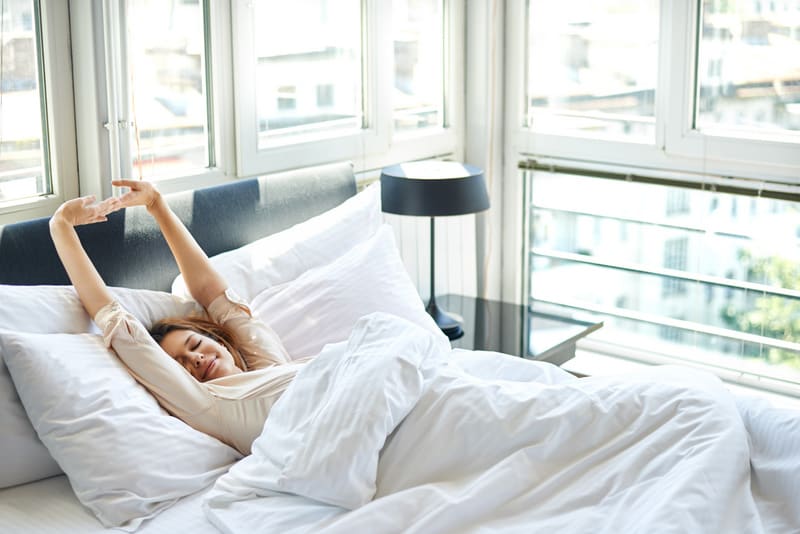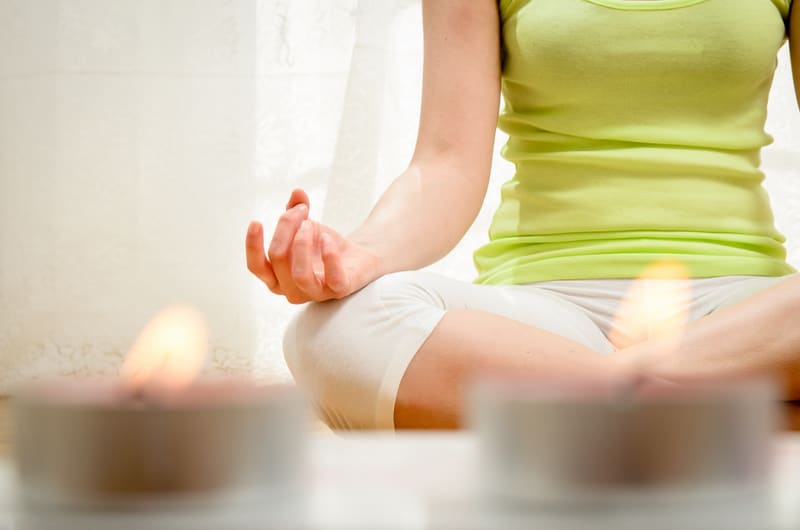Do You Know These Five Efficient Sleep Secrets?
Sleep is vital to human health and well-being. And yet many people -- especially students -- think of it as expendable. After all, when it feels like there simply aren’t enough hours in the day, sleep is often the first casualty. Unfortunately, this can lead to dire consequences across everything from cognitive function to immune response. The good news? All students can immediately begin reaping the benefits of a good night’s sleep thanks to these five tips.
- Student Tips

Sleep is vital to human health and well-being. And yet many people -- especially students -- think of it as expendable. After all, when it feels like there simply aren’t enough hours in the day, sleep is often the first casualty. Unfortunately, this can lead to dire consequences across everything from cognitive function to immune response. The good news? All students can immediately begin reaping the benefits of a good night’s sleep thanks to these five tips.

1. Set -- and stick with -- a regular sleep schedule.
There’s no denying that students have busy lives. However, the reality is that sleep is not optional. One of the best ways to overcome sleep-related obstacles? By committing to sleep and wake at the same time every day.
Says Harvard, “Keeping a regular sleep schedule—even on weekends—maintains the timing of the body's internal clock and can help you fall asleep and wake up more easily.”
And while you may feel like the only student on campus turning in before midnight, you’ll be glad you did when you’re bright-eyed and clear-headed during your 8am class.

2. Create a “sleep zone.”
Particularly if you’re living in a small space and/or with a roommate, making a dorm room feel like a bedroom can be a challenge. However, designating a zone just for sleeping (and sex) can help you sleep better. A dark, cool, quiet place is optimal. (For college students, this may take some creativity in the form of everything from sleep masks to portable fans.) And while keeping your device out of bed may seem like an impossible imperative, you’ll sleep better without it within arm’s reach.
Sometimes, even the smallest things can have the biggest impact. A noisy roommate or busy residency hall is no match for an inexpensive pair of earplugs.

3. Just say “om.”
Do you struggle to wind down after a long, busy day? If so, you’re hardly alone. After all, college students have their fair share of stimulation and stress -- two things which aren’t exactly conducive to relaxation. Enter meditation. A Time article on the benefits of meditation says, “Mindfulness techniques have been shown to improve sleep quality, fatigue and insomnia in people who have trouble sleeping—possibly by helping them relax more and let go of stress.”
The best part? It doesn’t take any particular skill or time commitment to start making meditation part of your life. Instructs Time, “It can last anywhere from one to 20 minutes, and it's easy to do while lying in bed—a perfect precursor to sleep. Here's how to do it: lie down or sit still in a chair with your eyes closed, and begin to take inventory of the sensations in each part of your body, starting at your toes and traveling up from there.”

4. Avoid stimulants and “triggers.”
While you’re probably aware that coffee before bedtime is a no-no, other caffeine-containing foods and drinks -- including tea, soda and chocolate -- can also keep you up for as long as five hours post-consumption. To avoid a racing mind at night, avoid caffeine in the six to eight hours before bedtime.
Other lesser-known contributors to sleep issues? Alcohol, which can cause disruptive nighttime wakings; and nicotine, which is not only a stimulant, but can cause nightmares and morning grogginess. Not smoking in the first place is the best solution, but if you must smoke, refrain from doing so within two hours of bedtime.
And while exercising is a healthy habit which can improve your quality of sleep, getting your workout in just before bedtime can have the opposite effect. Cautions the Mayo Clinic, “Just don't exercise too close to bedtime, or you may be too energized to hit the hay.”

5. Nap...but not too late or for too long.
Naps can have extraordinary benefits, including relaxation; reduced fatigue; increased alertness; improved mood; and improved performance, such as better memory and quicker reaction time. However, nap too late in the day and/or for longer than an hour and a half, and you may end up hurting your nighttime sleep.
Want to derive targeted benefits from naps? Here’s a primer from WebMD, “The length of your nap and the type of sleep you get help determine the brain-boosting benefits. The 20-minute power nap -- sometimes called the stage 2 nap -- is good for alertness and motor learning skills like typing and playing the piano….What happens if you nap for more than 20 minutes? Research shows longer naps help boost memory and enhance creativity. Slow-wave sleep -- napping for approximately 30 to 60 minutes -- is good for decision-making skills, such as memorizing vocabulary or recalling directions. Getting rapid eye movement or REM sleep, usually 60 to 90 minutes of napping, plays a key role in making new connections in the brain and solving creative problems.”
One more reason to make these five better sleep tips part of your student life? Research indicates that the amount of sleep students get is an accurate predictor of student success. The takeaway? Stepping away from the books and stepping into your bed may be the smartest thing you do today.

Joanna Hughes
Author
Joanna worked in higher education administration for many years at a leading research institution before becoming a full-time freelance writer. She lives in the beautiful White Mountains region of New Hampshire with her family.
Read related articles

Six Things All International Students Should Do Before Traveling

Why You Should Befriend International Students
